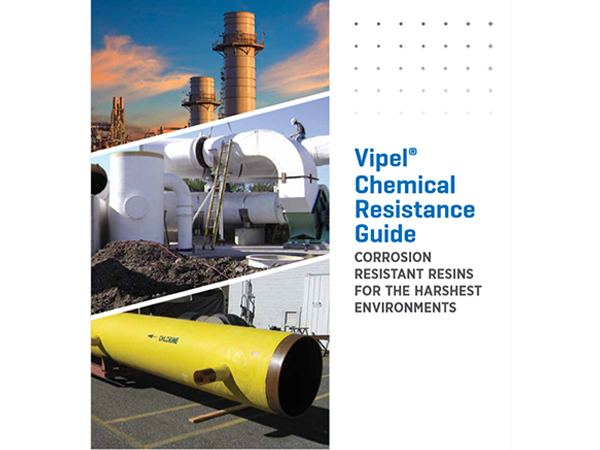
-
 Afrikaans
Afrikaans -
 Albanian
Albanian -
 Amharic
Amharic -
 Arabic
Arabic -
 Armenian
Armenian -
 Azerbaijani
Azerbaijani -
 Basque
Basque -
 Belarusian
Belarusian -
 Bengali
Bengali -
 Bosnian
Bosnian -
 Bulgarian
Bulgarian -
 Catalan
Catalan -
 Cebuano
Cebuano -
 China
China -
 China (Taiwan)
China (Taiwan) -
 Corsican
Corsican -
 Croatian
Croatian -
 Czech
Czech -
 Danish
Danish -
 Dutch
Dutch -
 English
English -
 Esperanto
Esperanto -
 Estonian
Estonian -
 Finnish
Finnish -
 French
French -
 Frisian
Frisian -
 Galician
Galician -
 Georgian
Georgian -
 German
German -
 Greek
Greek -
 Gujarati
Gujarati -
 Haitian Creole
Haitian Creole -
 hausa
hausa -
 hawaiian
hawaiian -
 Hebrew
Hebrew -
 Hindi
Hindi -
 Miao
Miao -
 Hungarian
Hungarian -
 Icelandic
Icelandic -
 igbo
igbo -
 Indonesian
Indonesian -
 irish
irish -
 Italian
Italian -
 Japanese
Japanese -
 Javanese
Javanese -
 Kannada
Kannada -
 kazakh
kazakh -
 Khmer
Khmer -
 Rwandese
Rwandese -
 Korean
Korean -
 Kurdish
Kurdish -
 Kyrgyz
Kyrgyz -
 Lao
Lao -
 Latin
Latin -
 Latvian
Latvian -
 Lithuanian
Lithuanian -
 Luxembourgish
Luxembourgish -
 Macedonian
Macedonian -
 Malgashi
Malgashi -
 Malay
Malay -
 Malayalam
Malayalam -
 Maltese
Maltese -
 Maori
Maori -
 Marathi
Marathi -
 Mongolian
Mongolian -
 Myanmar
Myanmar -
 Nepali
Nepali -
 Norwegian
Norwegian -
 Norwegian
Norwegian -
 Occitan
Occitan -
 Pashto
Pashto -
 Persian
Persian -
 Polish
Polish -
 Portuguese
Portuguese -
 Punjabi
Punjabi -
 Romanian
Romanian -
 Russian
Russian -
 Samoan
Samoan -
 Scottish Gaelic
Scottish Gaelic -
 Serbian
Serbian -
 Sesotho
Sesotho -
 Shona
Shona -
 Sindhi
Sindhi -
 Sinhala
Sinhala -
 Slovak
Slovak -
 Slovenian
Slovenian -
 Somali
Somali -
 Spanish
Spanish -
 Sundanese
Sundanese -
 Swahili
Swahili -
 Swedish
Swedish -
 Tagalog
Tagalog -
 Tajik
Tajik -
 Tamil
Tamil -
 Tatar
Tatar -
 Telugu
Telugu -
 Thai
Thai -
 Turkish
Turkish -
 Turkmen
Turkmen -
 Ukrainian
Ukrainian -
 Urdu
Urdu -
 Uighur
Uighur -
 Uzbek
Uzbek -
 Vietnamese
Vietnamese -
 Welsh
Welsh -
 Bantu
Bantu -
 Yiddish
Yiddish -
 Yoruba
Yoruba -
 Zulu
Zulu
Durable Solutions for Fiber Reinforced Plastic Tanks in Various Industrial Applications
The Advantages and Applications of Fiber Reinforced Plastic Tanks
Fiber reinforced plastic (FRP) tanks have gained significant attention across various industries due to their unique properties and benefits. Made from a composite of plastic reinforced with fibers—typically glass or carbon—these tanks are renowned for their exceptional strength-to-weight ratio, corrosion resistance, and durability. This article explores the advantages and applications of FRP tanks, shedding light on why they are becoming the go-to choice for fluid storage and transportation.
Advantages of Fiber Reinforced Plastic Tanks
1. Corrosion Resistance One of the most significant advantages of FRP tanks is their resistance to corrosion. Traditional materials, such as steel or iron, can degrade quickly when exposed to harsh chemicals, water, or saltwater environments. FRP, on the other hand, is inherently resistant to a variety of corrosive substances, making it ideal for industries such as chemical manufacturing, wastewater treatment, and marine applications.
2. Lightweight and Strong FRP tanks are considerably lighter than their metallic counterparts. This lightweight nature facilitates easier handling, installation, and transportation, reducing the overall cost of logistics. Despite their light weight, these tanks maintain high strength and can withstand high pressures and impacts, making them suitable for demanding applications.
3. Customizability FRP tanks can be tailored to meet specific design requirements. They can be manufactured in various shapes and sizes, allowing for customized solutions that cater to unique storage needs. Additionally, the resin formulations can be adjusted to enhance properties such as UV resistance, fire retardance, or improved chemical compatibility.
4. Thermal Insulation The composition of fiber reinforced plastics provides good thermal insulation properties, which is essential for storing temperature-sensitive materials. This intrinsic insulation can help maintain the desired temperature of the contents, reducing energy costs when heating or cooling is necessary.
5. Low Maintenance FRP tanks require minimal maintenance compared to metal tanks. Their resistance to corrosion and environmental degradation means that they do not require frequent inspections or protective coatings, leading to lower operational costs over time.
fiber reinforced plastic tank

Applications of Fiber Reinforced Plastic Tanks
1. Chemical Storage Due to their exceptional chemical resistance, FRP tanks are frequently used for storing a variety of chemicals, including acids, caustics, and solvents. Industries such as petrochemicals, pharmaceuticals, and water treatment rely on these tanks to ensure safe and efficient storage.
2. Wastewater Management In the wastewater treatment sector, FRP tanks are used for storage and processing, such as in settling tanks, sludge storage, and bioreactors. Their resistance to corrosive conditions and ease of maintenance make them especially favorable for managing waste.
3. Food and Beverage The food and beverage industry requires strict hygiene and safety standards. FRP tanks can be designed to meet these requirements, offering a safe solution for storing water, sugar syrups, and other ingredients without risking contamination from corrosion.
4. Pharmaceuticals In the pharmaceutical industry, the integrity of storage containers is paramount. FRP tanks are utilized for storing various drugs and intermediates. Their customizability allows for specific solutions that meet FDA regulations and provide peace of mind regarding material compatibility.
5. Agriculture In agriculture, FRP tanks are used for storing fertilizers, pesticides, and other agrochemicals. Their durability and resistance to chemicals make them an ideal choice for farms, especially in regions where traditional materials may fail quickly due to environmental factors.
Conclusion
Fiber reinforced plastic tanks represent a strategic advancement in storage technology, offering significant advantages over conventional materials. Their corrosion resistance, lightweight nature, customizability, low maintenance requirements, and thermal insulation make them versatile solutions across various industries. As global industries continue to prioritize safe, efficient, and sustainable practices, the role of FRP tanks in storage and transportation will undoubtedly expand, revolutionizing how we handle fluids and materials in the future. Whether in chemical manufacturing, wastewater treatment, or even agriculture, fiber reinforced plastic tanks are poised to play a crucial role in modern infrastructure and industrial processes.









